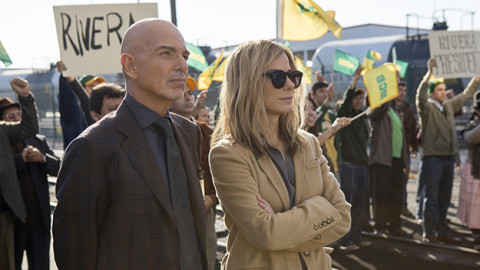By Nicolas Rapold in the November-December 2015 Issue
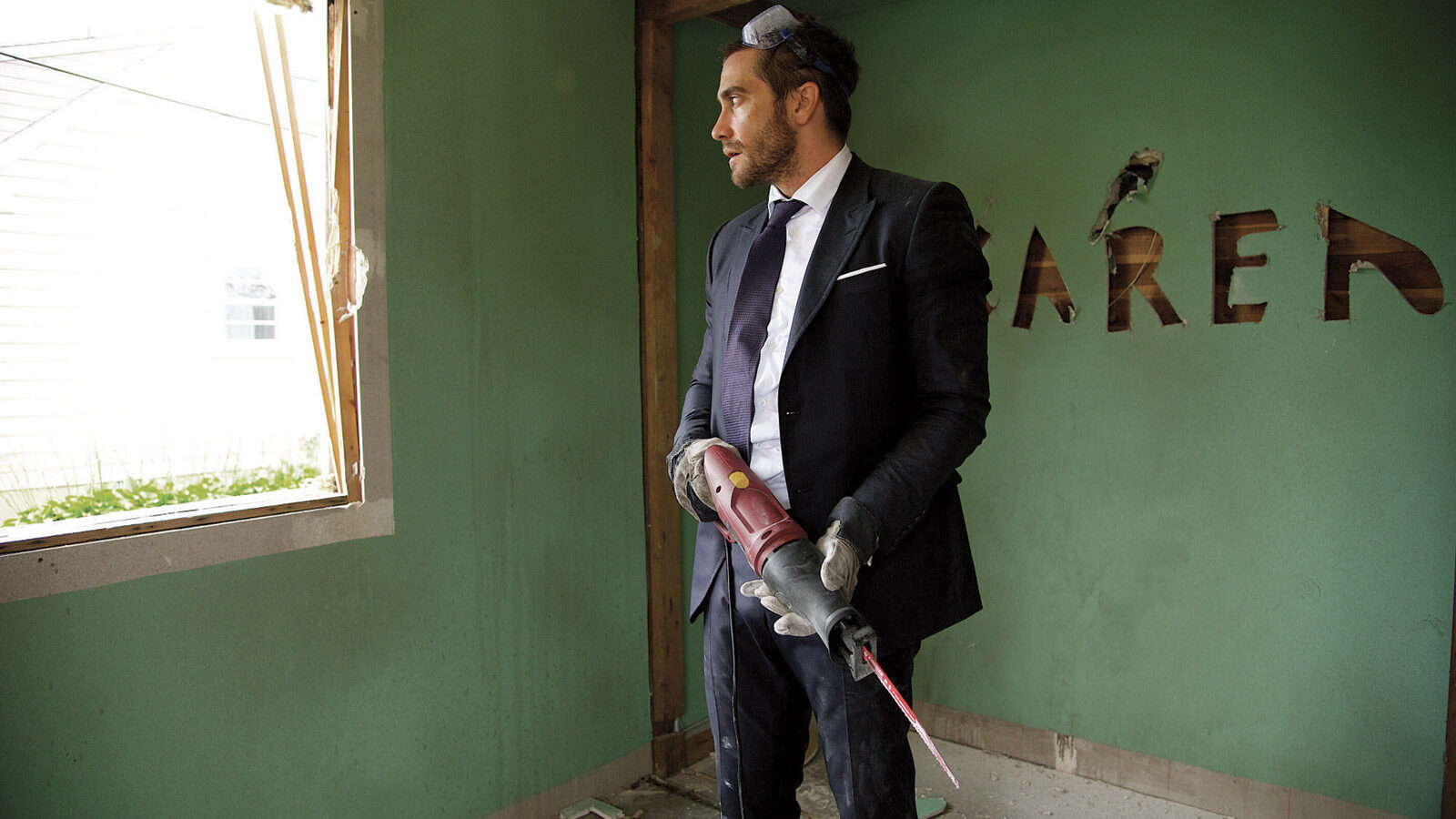
Many Roads to Hell
Toronto highlights showcased good intentions and bad faith alike
Apart from a new program or two, the annual carnival of commotion at Toronto did not appear to give rise to that much more hubbub for the 40th-anniversary edition. Certainly the opening-night film, Demolition, was nothing to crow about, and while the opener of any fest is often an easy target, it was dismaying to read the programmer-in-chief boasting that he and his colleagues couldn’t have tailor-made a better film for the purpose. That’s because Jean-Marc Vallée, apparently desirable after hosting awards-courting performances in Dallas Buyers Club and Wild, surpasses his directorial tendency toward tone-deaf politics with the bizarre douchebag-liberation narrative of his newest. Looking a bit like a bourgeois action figure, Jake Gyllenhaal plays an i-banker who works for his father-in-law’s firm and loses his wife in a freak car accident; his grief spurs him to act out by shirking work, disassembling clocks and other objects, and taking on construction work as a hobby and a working-class mother (Naomi Watts) as a mistress. “I’d like to be able to do what you do: to be completely honest,” he’s told admiringly. There’s absolutely nothing genuinely at stake for this insulated protagonist and little that’s likable about him, while his comical slumming grows increasingly grating. Vallée stacks the deck dramatically to a nearly grotesque extent: the rebel banker’s in-laws spitefully inform him that his wife was having an affair and (just to drive things home) aborted a pregnancy by The Other Man—what’s more, they wish she’d kept it. The pile-on crosses some line of decency when the son of Watts’s character muses about his sexuality, gets brutalized by thugs, and is essentially treated as sight-seeing on our hero’s personal journey.
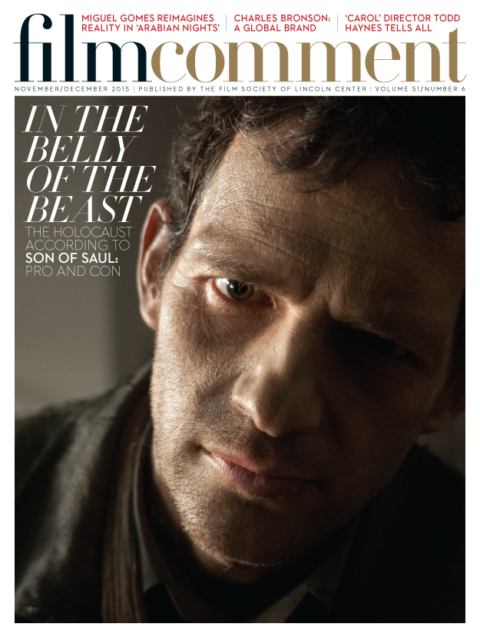
From the November-December 2015 Issue
Also in this issue
So, there was that (coming to a theater near you next spring), but Toronto did have a number of other films that, whether stumbling or not, at least raised some intriguing political questions. White Knights was one, premiering in the new section called Platform, a boutique flotilla of polished, ready-for-the-art-house-but-not-intimidating films. Belgian director Joachim Lafosse gives this NGO drama the rolling, mobilized-forces feel of many a Western production set in Africa, with Vincent Lindon leading a French group in West Sudan that’s purportedly offering safe haven and schooling for orphans. The source story is the case of Arche de Zoé who turned out to be running a presumably well-meaning but wrongheaded effort to smuggle children back to adoptive parents in France, red tape be damned. But instead of a tearful tale of noble hopes dashed, Lafosse patiently airs the logistical travails of the project as well as everyone’s misgivings, emphasizing collective inertia over heroics. Nobody’s ennobled by good intentions; even a documentary filmmaker (Valerie Donzelli) who’s tagging along fails to maintain her objectivity. While the ultimate narrative sensation is a bit that of a plane in slow-motion free-fall, Lafosse’s tenacious approach compels attention in spite of itself. And when audience members at a public screening asked his feelings about the film, he offered a sharp rebuttal of explicating directorial intention: “If I answer you, I kill my movie.”
Our Brand Is Crisis played out another drama of foreign intervention, in the form of an American political operative, Jane Bodine (Sandra Bullock), brought in to help a connected business-minded conservative in Bolivia recapture the presidency from more egalitarian candidates. The title may ring a bell since Rachel Boynton’s incisive 2005 documentary of the same name detailed the actual involvement of American politico marketing firm Greenberg Carville Shrum in swaying the 2002 Bolivian presidential election. Bodine’s nemesis, hawking the leading opposition candidate, is played by Billy Bob Thornton (who you might remember played… James Carville in Primary Colors). But while the similarities peter out there, this diligent studio-style comedy by David Gordon Green is mainly distinguished by its bouncy portrayal of campaigning as beyond cynical and instead flat-out duplicitous, which gives it an added bite beyond the usual political-film tradition of the all-American con. It’s fascinating watching Bullock, the underdog star we’re normally supposed to root for, deal with her deeply antiheroic character partly by playing up the crazy-breakdown factor (Bodine is portrayed as an unstable recluse). This isn’t anything radical smuggled into mainstream cinema, but its the-party’s-over ending of urban protests and chaos—Bodine’s candidate, sure enough, sells the country out to the IMF as soon as he’s in office, leading to riots—makes for more of a curiosity than its hoary professional-rivalry plot might suggest.
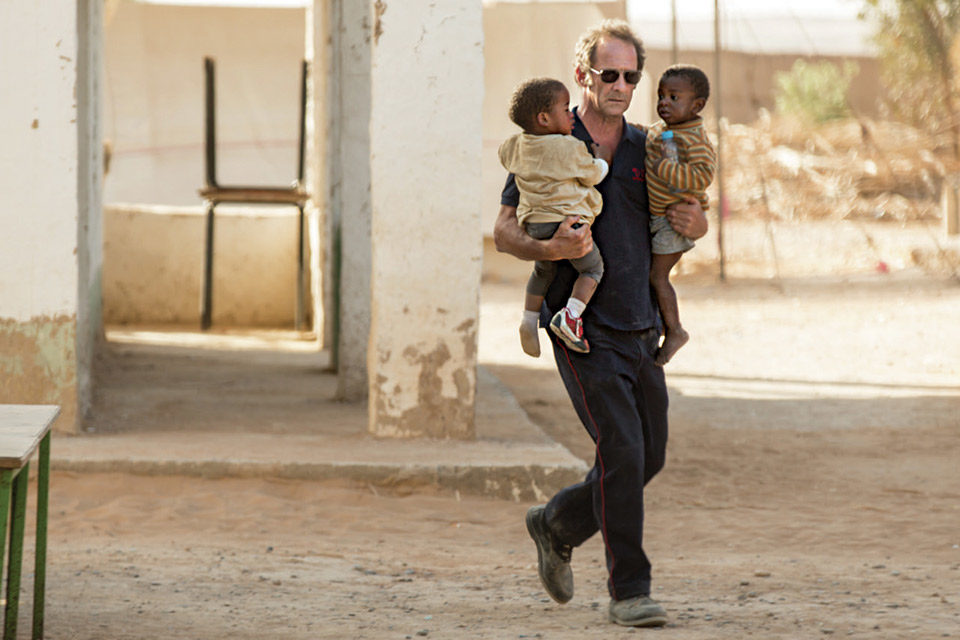
White Knights
Which brings us to the relentless war bummer Kilo Two Bravo, depicting perhaps the most instantly demoralizing and nerve-wracking of all these overseas adventures. Not to mention grisly: drawing on an actual incident, director Paul Katis follows a squad of British paratroopers in the badlands of Afghanistan all the way into a minefield where grave injuries are incurred—and then we stay there. Easily half of the film consists of helpless stasis: the soldiers remain stuck in a craggy no-man’s-land, unable to move for fear of triggering more mines, in what’s effectively a maddening one-sided battle with no enemy in sight. Helicopters and other help are agonizingly slow to arrive; more get mauled. Katis and his chummy cast, who speak in thick accents, sustain the suspense for quite some time, without dissolving into comradely sentimentality, and, as in White Knights, the film determinedly refuses to hold out redemption. As a pocket demonstration of the futility of foreign entanglement in a land that’s been a graveyard for Soviets, Americans, and so many other nations, Kilo Two Bravo is perversely effective, far more so than the tortuous casuistry of Bitter Lake. It’ll be intriguing to see what Katis does with a larger canvas after this technically expert but inherently taxing and constrained scenario.
A long-anticipated premiere this year was the second feature of Lucile Hadzihalilovic, who in 2005 made a girls’ boarding school the subject of the darkly fantastical Innocence. Whereas then she turned a perverse sylvan institution into something at once allegorical and polymorphic, Evolution feels like a more straight-forward genre expression of bodily and parenting anxieties. A seaside village is the insular setting, run by drably dressed eyebrowless women who execute diabolical plans involving their sons. The story’s center is one especially sallow-looking kid as he is medicated and gradually groomed to become a surrogate host—but to say more about the nature of his biological obligations would give away what’s ultimately a small-scale atmospheric horror film with the director’s fondly conceived creature-feature flourishes and a strand of fairy-tale wistfulness about lost parents. With its crepuscular lighting and general aura of nocturnal damp, you can practically smell the brine in the air, but I don’t recommend the octopus.
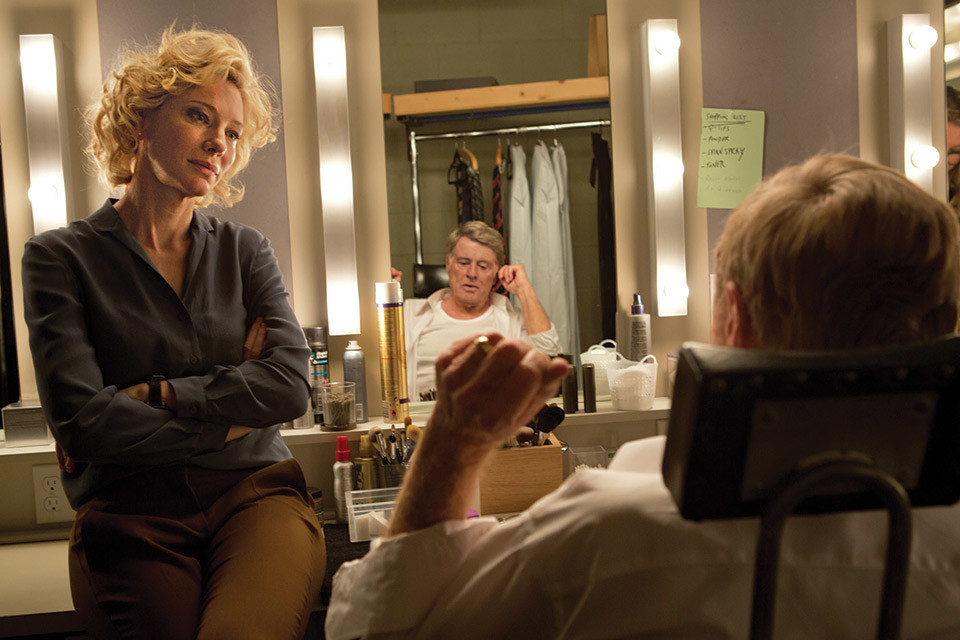
Truth
While a perennial clearinghouse for global cinema and Cannes/Berlin/Sundance hits (and misses), trawling Toronto in 2015 did not yield many genuinely successful and exciting premieres of the festival’s own. Or quite possibly this year I lacked the luck or knack. I would love to flaunt some genre find or small dramatic coup, some unsung national cinema, or even just some new French blood (though, speaking of, French Blood wasn’t a bad Three Ages of a Skinhead history of a race-baiter growing up through the shifting political climes of post-Mitterrand France). The fact is that one of my greatest pleasures was the propulsive drive—and head-on crash—of Truth, a grand account of 2004’s Rathergate. Cate Blanchett stars as CBS News producer and fierce Texan gal Mary Mapes, alongside Robert Redford as Dan Rather, before and after the fall caused by the 60 Minutes II report that relied on forged documentation to allege President George W. Bush’s truancy from the National Guard. The title made me cringe, but the gut-punching journo-drama zeroes in on the equivocation experienced by even the most righteous-minded citizen who smells a rat but remains cruelly powerless to do anything about it. Of course, Mapes and Rather were no ordinary citizens, and their actions involved some surprising short cuts, but debut director James Vanderbilt (screenwriter on Zodiac and blockbuster action properties) uses this historical episode to tap a certain late-Obama Administration zeitgeist—the long sigh that a full reckoning with the bewildering Aughts still hasn’t really happened.
Together with Spotlight, Truth could make an apt journalism double feature: the brassy, boldface-name theater of telejournalism posturing, versus the shoe-leather gradualism of the Boston Globe investigative team that exposed the Catholic Church’s cover-up of pedophiles in their ranks. Tom McCarthy’s suitably plainspoken film featured a deep bench—Michael Keaton, Rachel McAdams, Mark Ruffalo, Liev Schreiber, Stanley Tucci—digging into essentially a series of big supporting roles, all part of a larger team, appropriately enough. Perhaps it was the humbler pleasures of Toronto that left the deepest mark. Well, that, and Guy Maddin’s Bring Me the Head of Tim Horton.



